#methadone addiction treatment
Text
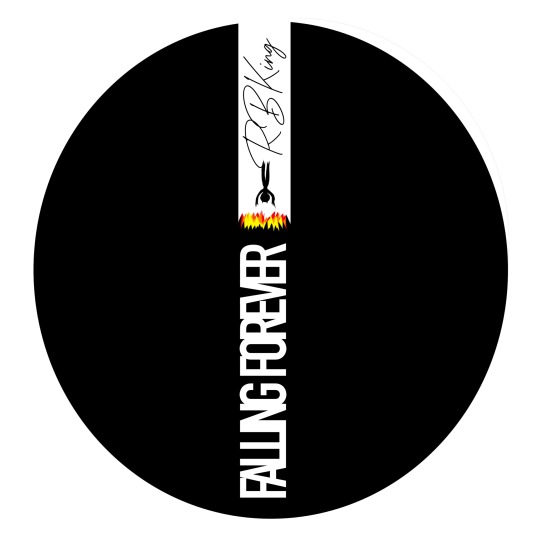
Falling Forever RBKING 2023
(A Non-Fiction Graphic Novel)
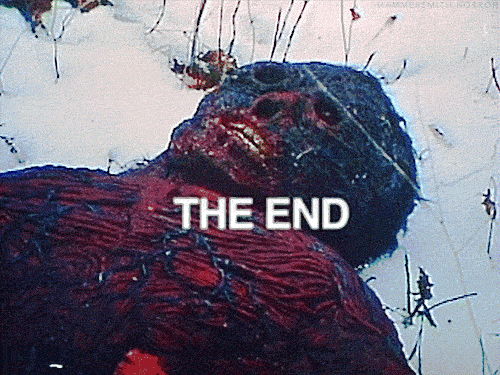
Enter the world of Drug Addiction how it has crippled people that were once top tier. Walk through their life in their shoes and how the day to day struggles you may think you have compare nothing to the lives that to many Americans live and seem to never escape. They wanted a life and got a RABIT HOLE FILLED WITH DRUGS ADDICTS AND A BALL AND CHAIN. Alter egos take over and you live in the darkness inside your mind while someone you don’t recognize is in control of your life hitting everything on its way Down to RB will you survive this in depth look and feel of loosing it all living in a car and being ok with it some how ?
#rabbit#hole#addicts#heroin#pills#addiction#book#user#graphic novel#non fiction#doctors#methadone#treatment#iOS#android#notes#animation#photography#Spotify
3 notes
·
View notes
Text
The worst part of writing about modern cultural anthropology is when I inevitably have to look at fandom discourse, and I have to force myself to observe objectively and not go fucking insane from the types of arguments I’m seeing
#I saw someone make a comparison of consuming hardcore fan fiction To Cope with methadone treatment for an opiate addiction#that made me get up and go walk to the store
2 notes
·
View notes
Text
Fentanyl Addiction Treatment Center in Greenville
Greenville's fentanyl addiction treatment center offers a beacon of hope, providing expert care, comprehensive therapies, and a supportive community to guide individuals towards a life of sobriety and wellness. Contact us on (864)306-8533 or visit our website for more information.
0 notes
Text
0 notes
Text
Opioid use disorder is a complex and challenging condition that affects millions of individuals worldwide. Addressing this requires a multi-faceted approach, and one effective treatment option is methadone maintenance therapy.
0 notes
Text

Medication-Assisted Treatment
Explore our approach to recovery through Medication-Assisted Treatment, where evidence-based medications are integrated into a comprehensive program to support individuals in their journey to sobriety!
#https://synergysobrietysolutions.com/medication-assisted-treatment-mat/#Medication-Assisted Treatment#MAT Program#Opioid Addiction Treatment#Substance Abuse Recovery#MAT Centers#Addiction Medications#Buprenorphine Treatment#Methadone Maintenance#Naltrexone Therapy#Dual Diagnosis Treatment#Opioid Dependency#Addiction Recovery Support#Behavioral Health Services#Comprehensive MAT#Holistic Addiction Treatment#Medication Management#Recovery Resources#MAT Counseling#Integrated Addiction Care#Substance Use Disorder Treatment
0 notes
Text
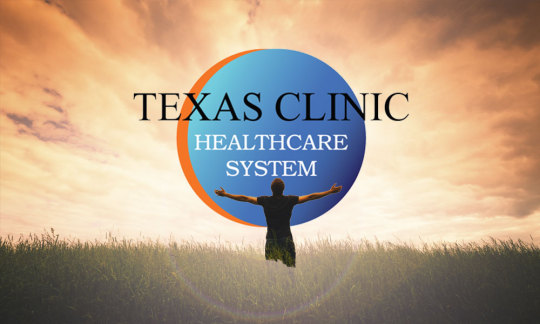
The clinical affiliation between the University of Houston Tillman J. Fertitta College of Medicine and top premier alcohol and opioid treatment centers in the Houston area represents a groundbreaking advancement in addiction treatment. Through their patient-centric approach, state-of-the-art services, and collaborative efforts, these affiliated centers are transforming lives and offering hope to those grappling with addiction. By providing targeted treatment and embracing medication-assisted therapy, they are paving the way for a future where individuals can break free from the shackles of addiction and embrace a life filled with purpose and fulfillment. Together, they are shaping a new narrative in addiction recovery and inspiring individuals to embark on their journey to a life free from the grips of addiction.
If you or someone you know is struggling with opioid addiction, the Texas Clinic in Fulton is a beacon of hope. With a commitment to personalized, holistic care, experienced professionals, and ongoing support, recovery is within reach. Don't let stigma or financial concerns deter you from seeking help. Choose recovery, choose Texas Clinic.
Contact Information:
For more information, please contact the affiliated treatment centers at the following locations:
Texas Clinic Grand Parkway: 713-348-9900
Texas Clinic Fulton: 713-694-8100
Texas Clinic Galleria: 713-543-8993
#addiction#alcohol#health#addiction treatment#addiction recovery#addiction rehab#addiction relapse#methadone#drinking
0 notes
Text
Dean not wanting Sam to go off alone in 5.02 is completely reasonable. They think they're on a demon case, and the ONLY time Dean has seen Sam drink demon blood, it was when Sam wrestled a demon he was fighting to the ground and drank from her neck right in front of Dean and Cas who he'd been keeping the entire thing from. He was so desperate for a hit he completely forgot/didn't care anymore. So Dean KNOWS the desperation Sam is capable of and exactly what he might do to get a taste of demon blood.
Sam may have gotten the "Supernatural methadone" treatment, but he still feels the psychological component of the addiction—the desire for the power the demon blood gives him, and that's very clear when Sam stands there staring at the "demon" blood on his hands in the store and only gets distracted from his obvious temptation when the door chimes and he needs to take cover again.
What's more, he as good as tells Dean that he wishes he had his powers again after killing the "demons" in the store. He says, "I just wish I could save people like I used to". He denies that that's his meaning, but exactly what else could that possibly mean? It's the same argument he made in 4.04 in the earlier stages of his use of demon blood, before it all went totally to shit with the inflated ego and the increasing lack of empathy and the increased appetite and the withdrawal symptoms when he didn't get a taste often enough. It's the early stages of a return to exactly where he was.
It is NOT irrational to suggest maybe Sam shouldn't be going off alone by himself on a case where they are surrounded on all sides by demons. Sam is essentially a recovering alcoholic trapped in an endless liquor store, and Dean is trying to keep him in the mixer isle or at least say "let me go down the isle with the rum with you", but Sam can't stand the idea of having anyone there to hold him accountable. His reaction (shoving Dean into the wall for thinking he might fall off the wagon) is fucking ridiculous, and it's even more ridiculous that he does it 1) literally RIGHT AFTER telling Dean he wishes he had his powers again (then insisting that isn't what he meant when there is literally nothing else he could mean). 2) A scene after he stood there staring at the "demon" blood on his thumb and on the knife, in the store, and only got distracted from his obvious temptation when the door chime rang.
The shove also only reinforces for Dean that he's right about this, and you can tell that's what makes Sam stop and realize he shouldn't pursue a fight further—that he's only digging his own grave, and it's pointless, because Dean already told him an episode ago that he doesn't trust him. He says,
Oh, that's right, I forgot. You think I'll take one look at a demon and suddenly fall off the wagon, as if, after everything, I haven't learned my lesson.
But... Sam hasn't... actually said yet that he doesn't want to drink demon blood anymore? He's said that Dean and Bobby warned him about it and he didn't listen, but he hasn't actually at any point said that he'd never consider drinking it again. He just said he doesn't have withdrawl symptoms because "whoever put me on that plane cleaned me right up." Like many of his actual motivations for drinking demon blood haven't been addressed at all and he just did the exact opposite of say he would never consider it again right before he says this so angrily.
53 notes
·
View notes
Note
Your post about how the clinical process surrounding mental illness and addiction was really interesting!
I wonder what your thoughts are about Housing First models and Common Grounds models? Because I feel like they speak directly to your points and provide the needs but also a structure that can be relied on if one wishes to change oneself.
my job as a research assistant is actually doing an evaluation of the benefits of a massive housing first project in boston! i am a fan of housing first particularly because i think everyone should be housed + the possibilities for life shrink dramatically the second somebody is unhoused, regardless of their substance use status. unhoused ppl are treated as less than human (sometimes less than animal tbh) in many spaces. i also have a personal investment because my brother overdosed in part because of the fact that he had been kicked out of his living situation for using + was forced to use with a depressed tolerance in a remote location. if he had been in a housing situation which was not contingent on sobriety, where others may have been present to narcan him or he would not have had the immense stress + trigger of dogshit menial labor jobs needed to pay the ridiculous, price gouging rents at sober living- i mean, i can't speculate, but it's something i do think about.
i think my hesitation with how it can be implemented is, again, the assumption that the end goal for everyone is recovery. my position is not "well some people can't recover" or "well some people can't recover until xyz is met" but "nobody is obligated to recover, ever, and recovery is a subjective concept which can be put to extremely reactionary uses. i want to reduce people's suffering and increase their possibilities for life."
i do think, based on my work, that it's really important for people who are using substances to have access to resources which facilitate their safety and happiness + a lot of them would probably choose either sobriety, MAT, or safer drug use habits if that was something which was easy for them to do. they often express genuinely felt desires to "get better" (in whatever way that means to them or whatever way they hope it means to me) but similar, competing desires to continue experiencing the benefits of their drug use, as well as avoiding the negatives of sobriety. while i chafe at the idea that all people's "true selves" want to recover (in the specific way that recovery is constructed by substance use treatment providers), i do think that most people want to suffer less. things like methadone/suboxone (or safe, legal, surveillance free supply!!!), medications provided on site, easily accessible, non judgemental medical treatment, etc can save lives.
it's important for ppl to be very skeptical of who is allocating/managing the resources for these interventions + their motivations. to be frank, i get scared about the future of the (admittedly imperfect) housing projects i work with because they are funded by the state of MA with the primary goal being to get ppl off the street, because housed members of the community were complaining about the encampments. the state very clearly wants to see that these projects 1) reduce the prevalence of visible homelessness and 2) reduce the rate of drug use among participants. my job is very explicitly to collect and produce data that indicates this + the questions i ask when i collect data are quite explicitly centered around figuring out if being housed makes ppl use less drugs. the point here is that the state absolutely can + will revoke the massive amounts of money it has allocated towards these programs if they don't see them as making people Stop Doing Drugs or Stop Wandering the Streets. this is why i think harm reduction responses should be grassroots responses originating within + for communities, as described in some of the chapters of Saving Our Own Lives. unfortunately, these communities rarely have the infrastructure or the resources to implement these projects, so they must rely on the state + all of its messy biopolitical motives
43 notes
·
View notes
Text
Portugal’s 2001 decriminalization law that saw such success crucially did more than decriminalize drug possession. It also set up robust harm reduction as well as treatment and recovery programs. Those in active addiction could get clean paraphernalia and medical supervision as well as methadone, which eases opioid withdrawals.
Those caught with drugs are sent to dissuasion commissions, which determine if the user is addicted, and if so, recommend treatment programs. If the addict voluntarily chooses to attend treatment, the commission books it for them, and they can attend for free. After residential treatment programs, recovering addicts get job support from the government, including loans to start worker cooperatives. Portugal treated addiction as a health issue rather than a criminal one, and unlike the United States, it treated health care as a right.
Amid an economic crisis, budget cuts and outsourcing destroyed Portugal’s world-renowned drug treatment system. In 2012, “Portugal decentralized its drug oversight operation” as “a funding drop from 76 million euros ($82.7 million) to 16 million euros ($17.4 million) forced Portugal’s main institution to outsource work previously done by the state to nonprofit groups.” At the same time, the country’s Institute for Drugs and Drug Addiction was disbanded and absorbed into the National Health Service, which simultaneously had its own budget cut by 10 percent.
The result: year-long waits for state-funded rehabilitation treatment, and a sharply decreasing number of people treated. Blaming government disinvestment, João Goulão — Portugal’s drug czar since 2005 and the architect of the decriminalization policy — said, “What we have today no longer serves as an example to anyone.”
Speaking almost a decade ago, a dissuasion commission member said, “If the person shows up at ten o’clock in the morning, we can schedule them for one o’clock in the afternoon at the treatment facility in order for them to start the analysis.” With wait times for treatment in Portugal going from four hours before the effects of austerity kicked in to an entire year, is it any mystery that Portugal’s drug statistics have been getting worse?
84 notes
·
View notes
Text
seeing some of you getting snotty about people not having first aid kits & first aid training without advising people on what they should have/what they should know is doing my nut in. without further ado:
First Aid Kits (what should be in yours)
If you’re going to uni/moving out of home, you really ought to have a first aid kit. Small first aid kits are fairly inexpensive and come with basic first aid supplies.
Included in my first aid kit is:
1 card of paracetamol tablets
1 card of ibuprofen tablets
A length of gauze bandage
1 tube of topical antiseptic (I use Savlon or Germolene)
1 tube arnica/bruise cream
30x plasters, assorted sizes
5x long strip plasters
10x antiseptic wipes
3x individually sealed small sterile gauze pads (7cm x 7.5cm)
4 sterile small adhesive dressings (7cm x 5.3cm)
it’s a good idea to also have an emergency card in your first aid kit, with the contact details for your next of kin and any health conditions written on it. They usually come as part of first aid kits anyway, and have a little clear plastic pocket to keep them in.
Also, remember to replenish whatever you use from your kit, and to keep an eye on expiration dates of medications/ointments.
Medication management
If you’re on medication long term (antipsychotics, antidepressants, statins, anticonvulsants, immunosuppressants, insulin etc.) you should have a two week overlap period; where possible, you should order a refill of your medication two weeks before your current supply runs out, so that if there are supply issues, you’re not going to be left hanging.
I’m aware this might not be possible for Americans owing to insurance and reassessment (I’m UK based, and just have to refill by filling out a form available in my GP’s office) and for those on controlled medications (opiates, methadone treatment for addiction, ADHD meds etc).
If you have medication that only requires use in emergent circumstances (ie. an EpiPen or an asthma inhaler), keep track of the expiration dates, and order a refill of your medication ahead of time. Better to have an extra inhaler knocking about for a couple of weeks than to really need one and not have it.
First Aid for Dummies & How to Get First Aid Training
Aif you’re ‘fresh out the womb’ new to first aid, or live somewhere where medical care is inaccessible, I highly recommend Where There Is No Doctor by David Werner and Carol Thuman, which gives step by step guides from scratches, scrapes and rashes up to emergent wound care. It’s not an exaggeration to say that that book kept me and my siblings alive for the first few years of our existencewhen we lived on the edge of the Kalahari 120 miles from the nearest hospital.
few bits and pieces of first aid I’ve picked up, both from training and being the world’s clumsiest son of a bitch:
Z-wrapping for wrists and ankles, especially if you’re prone to sprains. I don’t know how to explain this in a coherent way, so I’ve linked a video of how to do it.
For deep cuts or wounds that bleed a lot, you need to apply pressure and elevate the injury above the heart. It takes a nearly comically small amount of blood loss to become life threatening (blood loss equivalent to half a coke can is considered life threatening in adults) - if the blood is bright red, spurting/gushing, and the blood loss is uncontrolled, or if you have a clotting condition like haemophilia, you need to get to an urgent care centre yesterday. Call 999/911, maintain hard pressure over the wound, and keep the person calm and talking.
If someone has been stabbed an the knife is still in situ, for the love of God do not pull out the knife, or let them pull out the knife. It’s impossible to know what’s been hit without imaging, the knife acts as a seal in the wound; haemorrhage or massive internal injury are not situations you want to be dealing with outside of an acute trauma care setting. Call 999/911 immediately, and keep the injured person calm.
Learn how to recognise the signs of overdose. I went to a Midlands uni that had a reputation as a party uni, and hearing through the grapevine about ODs on nights out wasn’t uncommon. Narcan/Naloxone is a controlled substance in the UK so can’t be bought OTC, but I know it’s available to buy OTC in some parts of America and Canada. If you can, please consider carrying naloxone. If you witness an OD, call 999/911 immediately, and try to keep the person alert. If you have it, administer Narcan.
Don’t fuck with sepsis or meningitis. These diseases move fast, and can turn you into a past participle in as little as 12 hours. Get your MenACWY vaccine, know the symptoms, and call 999/911 immediately if you have the symptoms, especially if there’s been an outbreak in your area or you’ve had close contact with someone who is infected.
If you get bitten by a wild animal, (fox, bat, dog, raccoon…whatever) flushing the wound with water and then getting to A&E needs to become your number one priority. Tetanus, rabies and capnocytophaga infection are no joke: you need boosters/antibodies and antibiotics as a matter of urgency.
Finally, don’t be a hero. You are not John Wick. If someone is injured in an actively dangerous location or situation, the only thing you ought to do is call 999.
You really and truly don’t need to be able to pull a Hawkeye Pierce; the whole point of first aid is that it’s the first line of aid, and gets you to A&E or Minor Injuries so that you can receive professional medical attention.
That said, having a first aid training is incredibly valuable, both because you never know when some fuck shit is about to happen, and because by law most workplaces are supposed to have at least one first aider on staff, so it gives your CV an edge.
In the UK, the St. John Ambulance Trust offers workplace first aid certification, annual refreshers, sports first aid training, AED use & CPR certification and mental health first aid training.
You can also get personal first aid training for adults, children and babies with the British Red Cross for the cost of £37.50, as well as certified workplace first aid certification from £165.
The British Heart Foundation offer CPR training for free via their RevivR program; it takes 15 minutes, and can be used for workplace certification.
#em.txt#first aid#life skills#the fact some of you man were shouting at people for not having *tournequets* at home is a madness.#I’m begging you to pattern up and teach people the basics before you get on ur high horse and bust out the fucking Whiskey#68Whiskey ‘first aid in a war zone’ shit#remember most people don’t get taught this in schools. have some compassion abeg.#usual disclaimer of ‘lab based medicine training; not squishy actively bleeding people medical training’ applies#adventures in biomed#em’s unfortunate childhood comes in clutch yet again lmfao#medicine#street medicine#survival#resources
51 notes
·
View notes
Text
I love House MD to death but I will always be enraged by the the anti-methadone propaganda (when methadone was an approved opiate addiction treatment at that time in the 2000s) episode especially in how everyones sooo shocked that he didn't want to take Cuddy's offer of her being his methadone clinic doctor as if the whole episode wasn't wild ableism/anti-addict rhetoric and stigma and shame/attempting to fire him in disgrace and that it was weirdly controlling that she as his boss and employer would want to be her own methadone clinic instead of you know any other option. Like methadone is evil huh well okay then *ignores every methadone clinic and it's benefit to those in opiate addiction forever I guess /sarcasm*
8 notes
·
View notes
Text
Hey, I hate to ask but my fiance and I just got sick with covid. We are recovering addicts, he is on methadone and I was on suboxone but I recently took time off of work to taper off and withdraw from the suboxone. I'm in active withdrawal and now have covid and it's too much to deal with. I was doing sex work to help pay bills during this time but it's going to be a while before I can do anything since I'm this sick, and he's had to take time off work because of having covid since he works in the food industry. Any help would be so appreciated to help us pay rent and buy necessities
Cashapp: $MariahVickroy
Venmo: @MariahVickroy
!!!!!!!!! UPDATE!!!!!!!!
I hate to have to put this on here, but I was getting some art supplies off of a friend (I didn't come in contact with them they left them outside) and at a stop light, someone hit and run me in our only car. It's undriveable and no one can find the person who did it. My fiance can no longer get to his methadone treatments which he needs to go to every day. Please please any help is appreciated.
And thank you to the person named Jason that donated ❤️❤️❤️ I'm so thankful and your support means the absolute world to me. If anyone else donates, please send me a message with your username so I can thank you!
#help#financial help#covid#i need money#money problems#addicts#heroin addict#addict in recovery#cashapp#venmo#covid tw
133 notes
·
View notes
Text
MAT Services

Medication-Assisted Treatment (MAT)
MAT is a comprehensive and evidence-backed approach to managing substance use problems, particularly opioid addiction. Here we will provide an in-depth overview of Medication-Assisted Treatment (MAT), highlighting its benefits and effectiveness in helping individuals achieve lasting recovery to prevent future opioid overdose.
In this article, we will explore the different services and components of our Opioid Treatment Programs to gain additional resources and a deeper understanding of substance use disorders to better tailor treatment plans for patients. By understanding these conditions more thoroughly, medical providers can better tailor treatment plans for their patients.
Lastly, we will explore why Synergy Sobriety Solutions should be your go-to choice for Medication-Assisted Treatment (MAT). With a focus on compassionate care and cutting-edge techniques, our team is dedicated to helping those struggling with addiction reclaim control over their lives.
WHY CHOOSE US
Medication-Assisted Treatment Benefits
Our Medication-Assisted Treatment (MAT) program at Synergy Sobriety Solutions provides a wide range of benefits for individuals seeking recovery from substance or alcohol use disorder. The advantages of MAT don’t just provide a better quality of life but also support sustained sobriety to prevent opioid abuse.
Improved physical and mental health: MAT helps clients stabilize their bodies and minds, allowing them to focus on healing and personal growth during treatment.
Reduced cravings: By using medications such as methadone, buprenorphine, or naltrexone, our MAT program can help reduce drug cravings and withdrawal symptoms, making it easier for clients to maintain abstinence.
Increase motivation for recovery: As clients experience reduced cravings and improved well-being through MAT services, they often become more motivated to engage in other aspects of their recovery journey.
Better sleep patterns: Many people struggling with addiction suffer from disrupted sleep. Our comprehensive approach includes addressing sleep issues in the overall treatment plan.
If you’re looking for professional drug and alcohol treatment near Palm Beach, Florida’s beautiful beaches, contact Synergy Sobriety Solutions today. We are dedicated to providing compassionate care tailored to your unique needs on your path to lasting sobriety.
Get Sober with Medication-Assisted Treatment (MAT)
Synergy Sobriety Solutions offers Medication-Assisted Treatment (MAT) to help you overcome your substance use disorder and disorders. MAT combines medications for opioid use, like buprenorphine, methadone, or naltrexone, with counseling and behavioral therapies to treat addiction effectively.
Physical: MAT reduces withdrawal symptoms and cravings so you can focus on your recovery journey without discomfort or relapse risks.
Psychological: Counseling sessions address underlying issues contributing to addiction while providing coping strategies for maintaining sobriety during challenging situations.
Our MAT program is evidence-based and tailored to your unique needs, ensuring a well-rounded treatment plan. Located in beautiful Palm Beach, Florida, our facility offers an appealing environment close to the beach, making it an ideal setting for healing and growth.
MAT Services - Our Opioid Treatment Programs
Get the help you need with Synergy Sobriety Solutions’ MAT services, tailored to meet your individual needs.
Medication Management: Our team works closely with you to determine the best medications, including FDA-approved options like Buprenorphine, Methadone, and Naltrexone, to manage withdrawal symptoms and reduce cravings.
Counseling: Our experienced counselors specialize in substance use disorders and provide individualized therapy to address underlying issues and develop healthy coping skills.
Addiction Education & Recovery Support: Learn about the science behind addiction and effective strategies for maintaining sobriety through group sessions, workshops, and peer support groups like Narcotics Anonymous (NA) meetings.
Relapse Prevention Planning: Create a personalized plan with our staff to identify potential triggers and develop proactive strategies for managing them effectively.
Ongoing Support: Recovery is a lifelong journey, and we offer continued care through aftercare programs, including alumni events and additional counseling sessions if needed.
SUBSTANCE USE DISORDERS:
What They Are and How They Impact You
SUDs are mental health conditions characterized by an uncontrollable urge to use drugs or alcohol, resulting in physical, emotional, and social harm. SUDs can be classified into two categories: opioid use disorder and non-opioid substance use disorders.
Opioid Use Disorders: The Danger of Painkillers and Heroin
Opioid use disorders involve opioid dependence and the misuse of prescription painkillers like oxycodone and hydrocodone, as well as illegal substances like heroin, which can lead to addiction and harmful consequences.
Non-Opioid Substance Use Disorders: Alcohol, Cocaine, Meth, and Marijuana
Non-opioid substance use disorders, such as alcohol, cocaine, methamphetamine, and marijuana addiction, can result in cravings and an inability to control usage despite negative life consequences.
Synergy Sobriety Solutions‘ comprehensive treatment approach addresses both the treatment of opioid dependence-related and non-opioid-related SUDs with personalized care plans designed for each client’s specific needs.
Why Choose Synergy Sobriety Solutions?
– Expert Medical Providers
Our experienced medical and healthcare providers specialize in medication-assisted treatment, ensuring the most effective care possible.
– Holistic Treatment Modalities
Counseling: Our licensed therapists provide one-on-one counseling sessions to address underlying issues contributing to addiction.
Educational Programs: We offer education on addiction and recovery topics for long-term success.
Relapse Prevention Planning: Learn strategies for managing triggers and maintaining sobriety through comprehensive relapse prevention planning.
– Picturesque Location Near Palm Beach
Synergy Sobriety Solutions is located near beautiful Palm Beach, Florida, offering a serene beachside setting conducive to healing and personal growth. If you’re ready to take control of your life by seeking professional drug and alcohol treatment services at Synergy Sobriety Solutions, contact us today.
Conclusion - Intensive Outpatient Treatment
Medication-assisted treatment (MAT) is a game-changer in treating severe substance abuse and use disorders, combining medication with therapy and counseling to help individuals overcome addiction and achieve long-term recovery. At Synergy Sobriety Solutions, our opioid treatment programs offer comprehensive MAT services, with a team of experienced professionals who work closely with each patient to develop personalized treatment plans that address their unique needs and goals.
Our compassionate care and evidence-based approach to opioid addiction treatment is designed to help our patients succeed in their journey towards sobriety, and we are committed to providing the support and resources they need to achieve lasting recovery. Don’t let addiction control your life – contact Synergy Sobriety Solutions today to learn more about our MAT mental health services and start your journey toward recovery!
#https://synergysobrietysolutions.com/medication-assisted-treatment-mat/#Medication-Assisted Treatment#MAT Program#Opioid Addiction Treatment#Substance Abuse Recovery#MAT Centers#Addiction Medications#Buprenorphine Treatment#Methadone Maintenance#Naltrexone Therapy#Dual Diagnosis Treatment#Opioid Dependency#Addiction Recovery Support#Behavioral Health Services#Comprehensive MAT#Holistic Addiction Treatment#Medication Management#Recovery Resources#MAT Counseling#Integrated Addiction Care#Substance Use Disorder Treatment
0 notes
Text
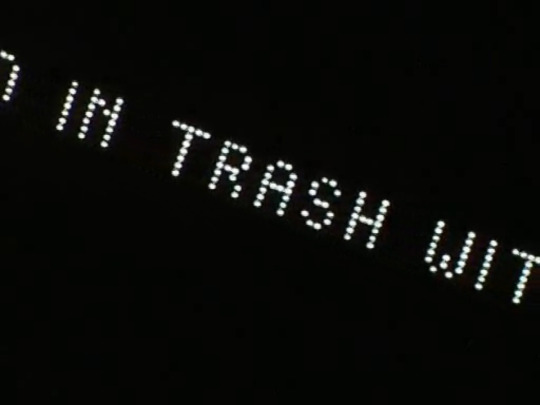
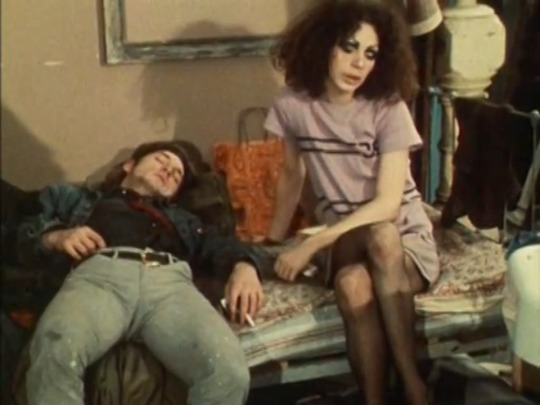



trash (1970) dir. paul morrissey on archive.org
"The movie follows Joe, a heroin addict, throughout his quest to score more drugs. The episodic plot occurs over a single day and centers on Joe’s problematic relationship with his on-off, sexually frustrated girlfriend. During the course of the day, Joe overdoses in front of an upper-class couple, attempts to fool Welfare into approving his methadone treatment by having Holly fake a pregnancy, and frustrates the women in his life with his drug-induced impotence." synopsis via tmdb
#trash (1970)#trash#paul morrissey#andy warhol#joe dallesandro#holly woodlawn#american film#film#archive#1970s#70s#cultreslut
12 notes
·
View notes